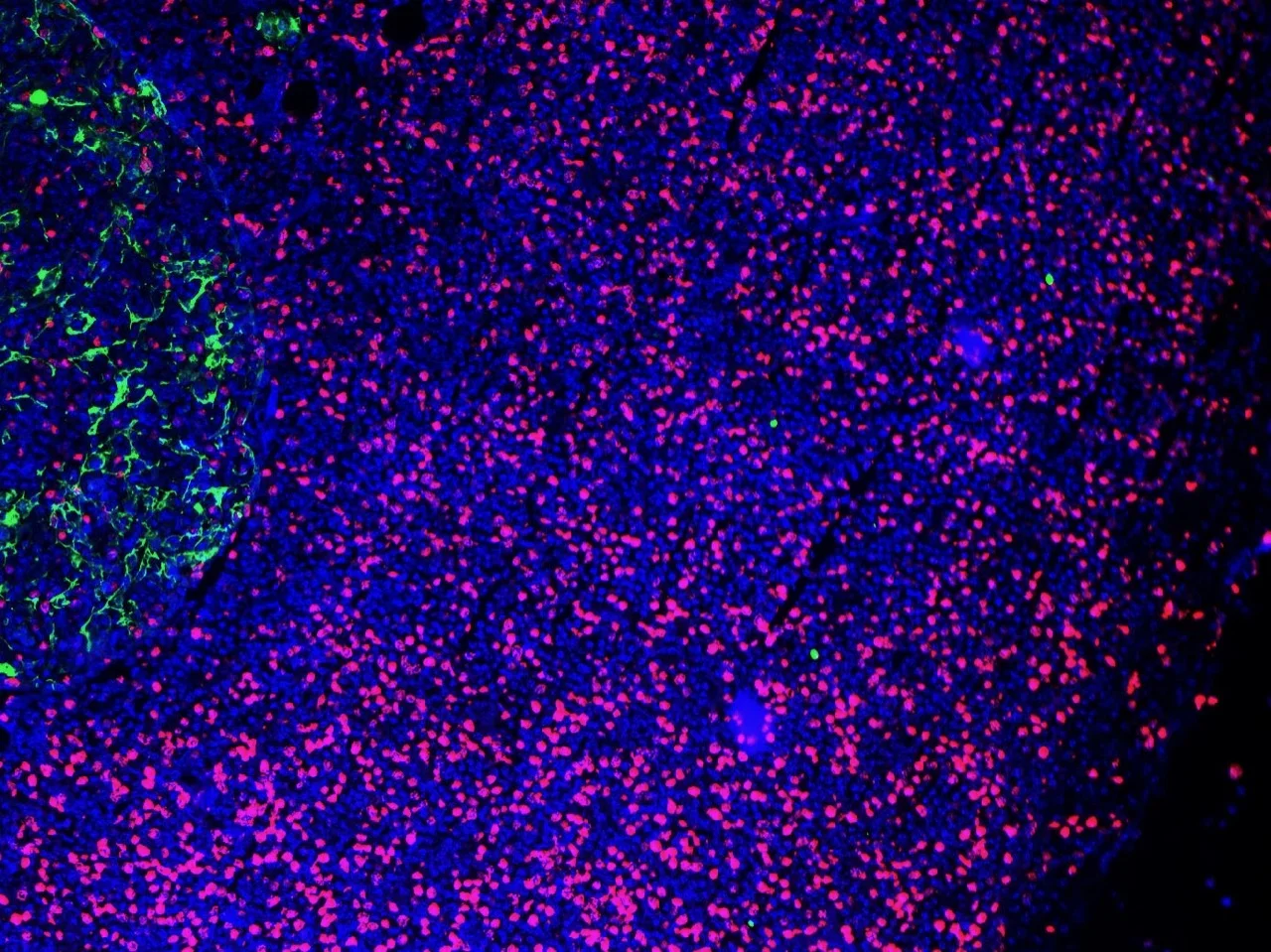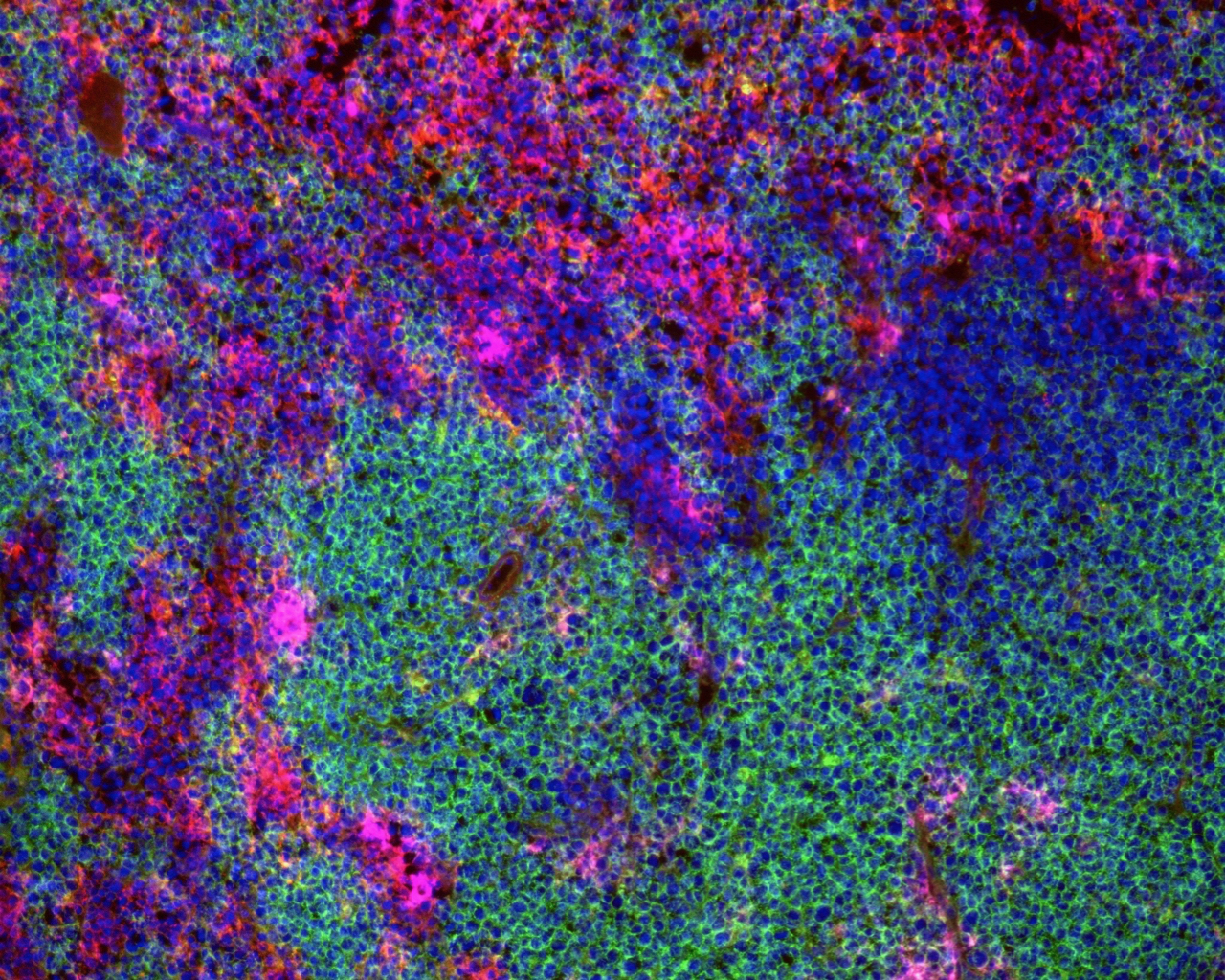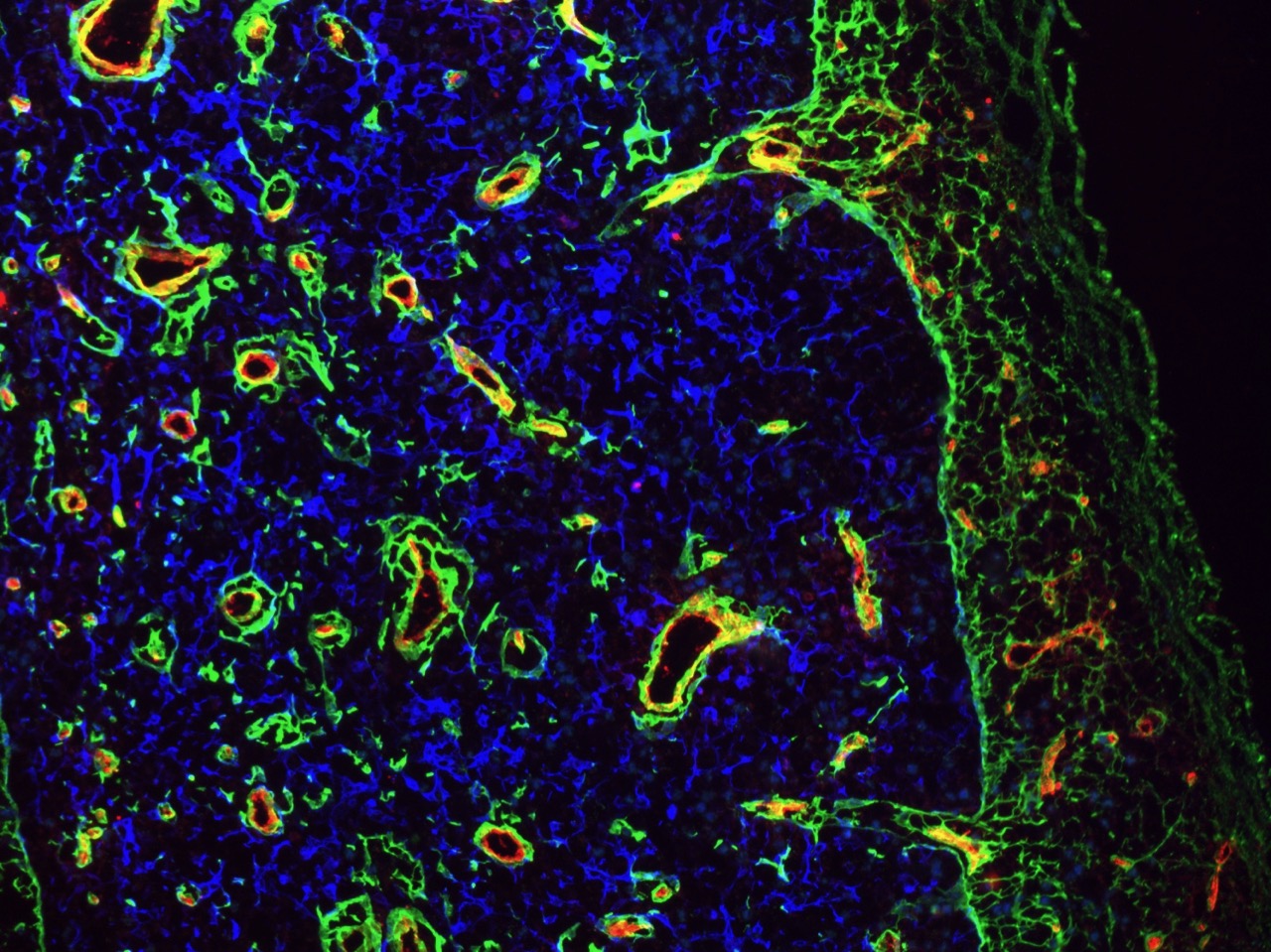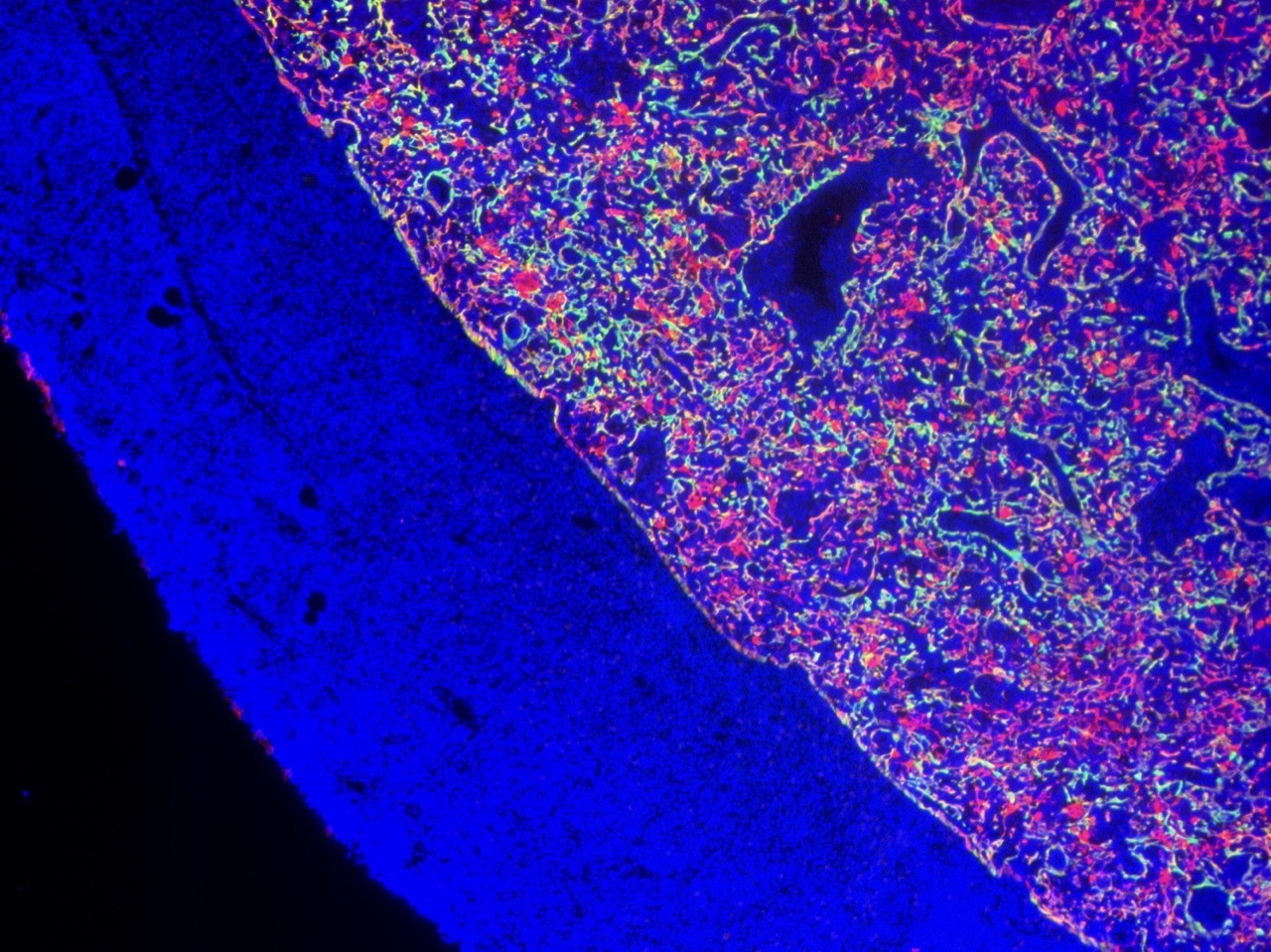The role of the Tumor Microenvironment in T Cell Acute Lymphoblastic Leukemia (T-ALL)
T cell acute lymphoblastic leukemia (T-ALL) is predominantly a pediatric malignancy, which arises from aberrant differentiation and unchecked proliferation of developing T cells in the thymus. ALL is the most common pediatric malignancy, with T-ALL representing ~15% of ALL cases. While intensified chemotherapeutic regimens have greatly increased 5-year event free survival rates, patients who fail to respond to therapy or who suffer relapse have poor prognoses. Development of targeted therapies with reduced toxicity to improve patient outcomes and decrease treatment-associated morbidity remains an important goal.
Given the obligate cross-talk between healthy developing T cells and thymic stromal cells, and the clear contribution of signals in the tumor microenvironment (TME) to progression of many malignancies, we hypothesize that the TME in T-ALL contributes to disease initiation and progression. Studies from our lab have recently demonstrated that leukemia-associated myeloid cells can directly promote survival and growth of T-ALL cells.
We are currently using a variety of approaches, including transcriptional and proteomic profiling, multi-parameter flow cytometry and histology, two-photon microscopy, and a variety of in vitro and in vivo assays to study interactions of leukemic cells with supportive cell types in the TME . Elucidation of the molecular and cellular mediators of T-ALL progression will yield candidates for novel targeted therapeutic interventions.





